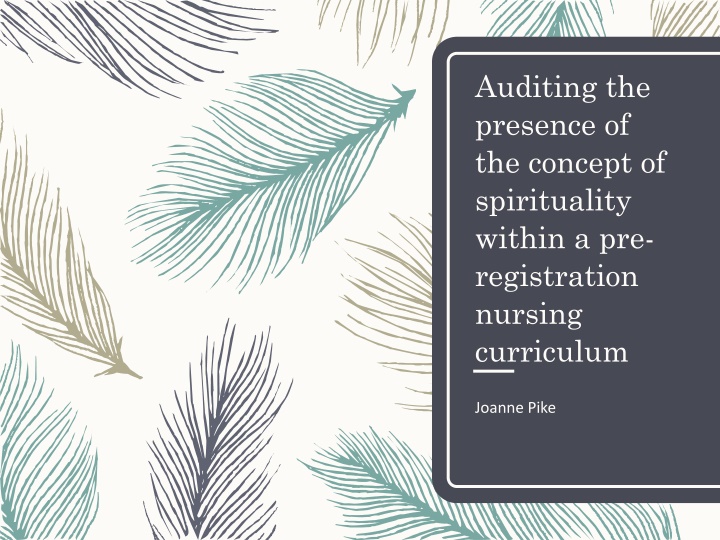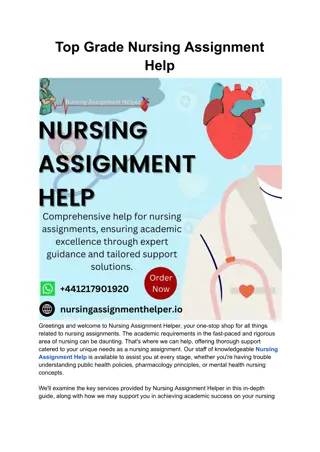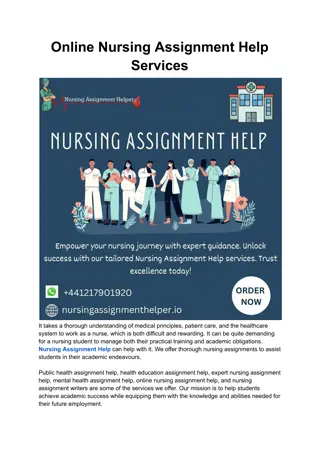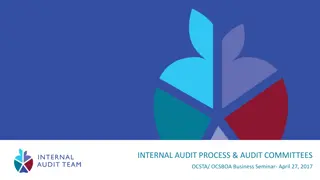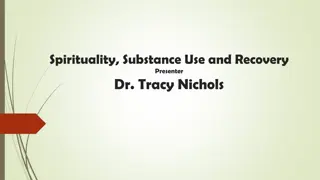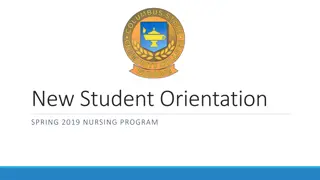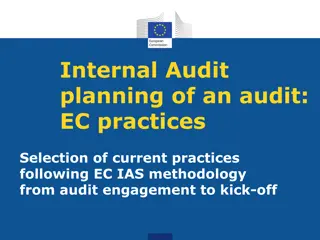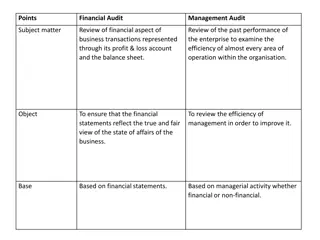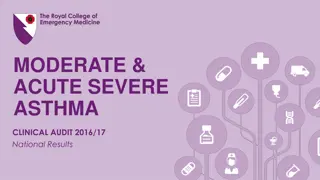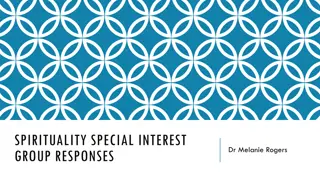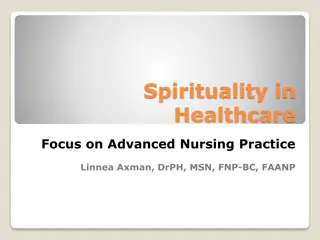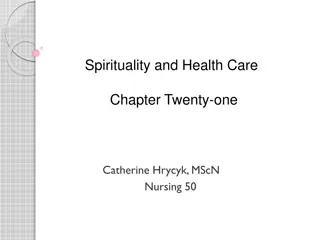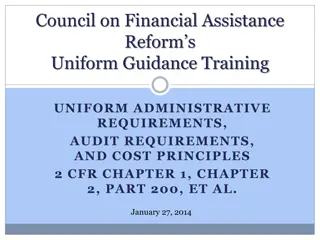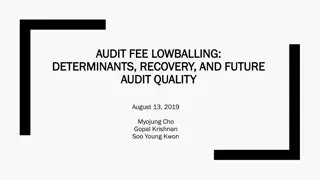Audit of Spirituality in a Nursing Curriculum by Joanne Pike
Joanne Pike conducted an audit to assess the incorporation of spirituality in a pre-registration nursing curriculum. The presence of spiritual concepts was analyzed within the curriculum document, individual module learning outcomes, and practice learning outcomes. Results revealed varying levels of visibility across different components of the curriculum, with an emphasis on competencies related to spiritual care education standards. The study highlighted the integration of spiritual themes throughout various modules, showcasing a holistic approach to nursing education.
Download Presentation

Please find below an Image/Link to download the presentation.
The content on the website is provided AS IS for your information and personal use only. It may not be sold, licensed, or shared on other websites without obtaining consent from the author.If you encounter any issues during the download, it is possible that the publisher has removed the file from their server.
You are allowed to download the files provided on this website for personal or commercial use, subject to the condition that they are used lawfully. All files are the property of their respective owners.
The content on the website is provided AS IS for your information and personal use only. It may not be sold, licensed, or shared on other websites without obtaining consent from the author.
E N D
Presentation Transcript
Auditing the presence of the concept of spirituality within a pre- registration nursing curriculum Joanne Pike
The questions 1. Where was the concept of spirituality visible within the curriculum document (the iteration of the teaching and learning of the pre-registration undergraduate programme)? 2. Where was the concept of spirituality visible within individual module learning outcomes? 3. Where was the concept of spirituality visible within the practice learning outcomes?
Results 1: the curriculum document Mapping the curriculum document against the draft spiritual care education standard was undertaken with some interesting results. Competencies 1,3,4,5,6,7,8, and 9 were visible within the curriculum document. Competency 2, however, was not visible. Interestingly, on discussing the curriculum with the programme team, they found the term existential questions difficult to understand and interpret. Further, there was some confusion about how this could be tested in practice. The following slides give a snap shot of the results from competencies 1, 3, 4 and 5
Results 2: The All-Wales Practice Learning Document The practice learning document is designed for students to be able to demonstrate the learning in practice in each of their three years. Students are assessed by their mentors in practice and it is the mentors who determine whether students have passed their clinical practice or not. The practice learning document is organised into four domains 1. Professional values 2. Communication and interpersonal skills 3. Nursing practice and decision-making 4. leadership, management and team working Each domain is comprised of a generic standard for competence and a field standard for competence. Students must pass all practice learning outcomes. As an overview: competencies 1,3,7,8 and 9 were easily found with in the practice document.
Results 3: the module learning outcomes The module learning outcomes addressed many of the key words within the Draft Spiritual Care Education Standards. I went through every single module over the three years looking for these keywords. Interestingly, spiritual themes were present throughout the modules, even though so little appeared within the practice learning outcomes and the curriculum document itself.
Year one. Holism, compassion, cultural factors and person centred care: underpinning the whole of the first year of study These elements were present in the 40 credit fundamentals of care module, the first module Also within the society and vulnerability 20 credit module And the personal and professional development and nursing practice module 40 credits, the final module in year one.
Year two. Spiritual and compassionate care, legal ethical and professional responsibility, dignity, morality, ethics professional responsibility and accountability, and delegation Once again these themes appeared in all four modules across the second year. Spirituality was specifically mentioned within the person centred nursing practice 20 credits module alongside dignity and compassionate care.
Year three. Dignity, and empowerment, interprofessional working, cultural sensitivity. Compassionate and patient centred care and therapeutic relationships Three of the four modules carried these themes. The only module not to include any of these within the learning outcomes was the quality improvement and managing change module, however, within the content, professional codes and ethics were included.
Summary Despite the relative lack of visibility of the terms spirit, spirituality, spiritual, the concepts underpinning these were very visible throughout the practice learning outcomes, the module learning outcomes and the module content. It appears that the philosophy of the team delivering this curriculum was not well presented within the program documentation, however, its iteration, in terms of the module content and learning outcomes spoke volumes of their person-centred nursing philosophy.
The only competency that the nursing team did not address anywhere within the curriculum was competency two: Value knowledge and experience an important element in dealing with the patients /clients and their families existential questions And on discussion with the team, it would appear that they were very unsure about this concept and how students might meet this competency in practice and in theory.
